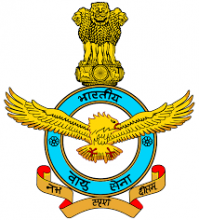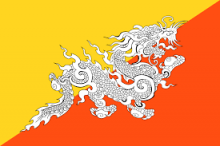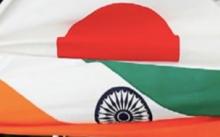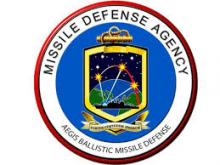-

During the present global turmoil, the Australian government has announced an aggressive defence policy. The White Paper on defence, ‘Defending Australia in the Asia Pacific Century: Force 2030,’ envisages a considerable increase in defence expenditure and a significant military acquisition programme for the Australian Defence Forces (ADF).
-

On 27 May 2009, the Indian Air Force inducted one of the biggest state-of-the-art platforms in its fleet capable of giving advance warning of an aerial threat. The platform is also capable of gathering electronics and signal intelligence. This is India’s first Airborne Warning and Control System, commonly known as AWACS. Two more such aerial platforms are in queue to be inducted by 2012.
-

For less than one million Bhutanese population, the year 2008 ushered in a new era of governance. The year witnessed the melting down of a century-old monarchy to a democratic constitutional monarchy. A parliamentary democratic government was formed in the nation based on the universal adult franchise. The Himalayan landlocked country drafted a constitution with provisions of 35 articles and four schedules, with the prior objective to eradicate Bhutan's backwardness and accelerate development.
-

Among the several congratulatory letters received by Prime Minister Manmohan Singh during his reelection, the message from French President Nicolas Sarkozy merits attention. While inviting Prime Minister Manmohan Singh to be the Chief Guest at the forthcoming ceremonies marking the National Day of France on July 14, Sarkozy has praised the Indian democratic system and alluded ‘ to the values of liberty, people's sovereignty and respect of diversity in secularism'. He has also underscored the necessity to expand the existing strategic partnership between the two countries.
-

The India-Japan partnership is one of the important thrust areas of Japan’s new foreign policy. In the recent past, except for Mori, Koizumi, and Abe, other prime ministers have shown little enthusiasm for improving their relationship with India. However, that trend seems to be changing.
-

The Government of Bangladesh has recently accepted India’s proposal to set up a Joint Task Force to deal with militancy and other anti-national elements. However, modalities of the Task Force are yet to be decided. As of now, India will be assisting Bangladesh with intelligence inputs only without any direct involvement in any joint military operations to flush out militants taking shelter in Bangladesh.
-

The Indian Navy was recently briefed on the Aegis ballistic missile defence (BMD) system for ships. The US aerospace giant Lockheed Martin had discussions with Indian authorities and reports suggest that they are ‘open to collaboration’ with the Defence Research and Development Organization (DRDO) on integrating the Prithvi Air Defence Shield (PADS) with the Aegis system.
-
In spite of the seemingly difficult terrain in generating and implementing confidence-building measures in South Asia, all are not doom and gloom. It is thus plausible to make the following conclusions based on existing regional and sub-regional arrangements in South Asia.
India and Pakistan, as the two new de facto nuclear weapon states in the nuclear club since 1998, have embarked upon some meaningful nuclear risk reduction measures through a series of bilateral agreements.
-

A new kind of apartheid is emerging from a country which had been under five decades of apartheid regime. The recent denial of a visa for the Dalai Lama to enter and attend a conference in South Africa has created much uproar in the breaking news! Dalai Lama was to attend the Nobel Peace Prize laureate's conference to highlight football's role in fighting xenophobia and racism.
-

The Liberation Tigers of Tamil Eelam (LTTE), which has been involved in the armed struggle with the Sri Lankan government since 1983, has now lost many of its senior cadres and strategic hideouts to the Sri Lankan military. For the first time, questions have been raised internationally on the future of Eelam movement under the Rajapakse's military doctrine. Despite the Sri Lankan military success, the LTTE could still stunningly make its presence felt by its active sympathisers worldwide and probably resorting to more suicide strikes at the same time.
Paxton ported to drupal by DropThemes.in